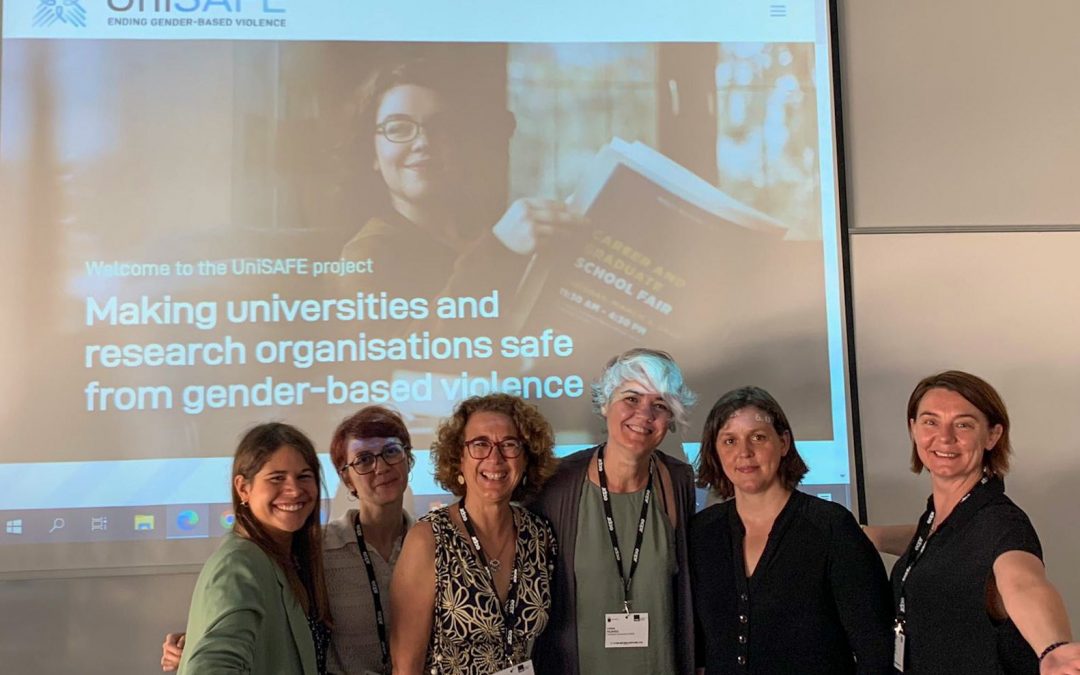


Join the #SafeAcademia campaign!
For the International day of Women and Girls in Science, join #SafeAcademia, a campaign to support a safe, respectful, and inclusive environment!

Analysis of institutional responses to gender-based violence in research performing organisations
UniSAFE report on 16 case studies of the Effects and Consequences of Institutional Responses to Gender-based Violence along the 7Ps in Research Performing Organisations
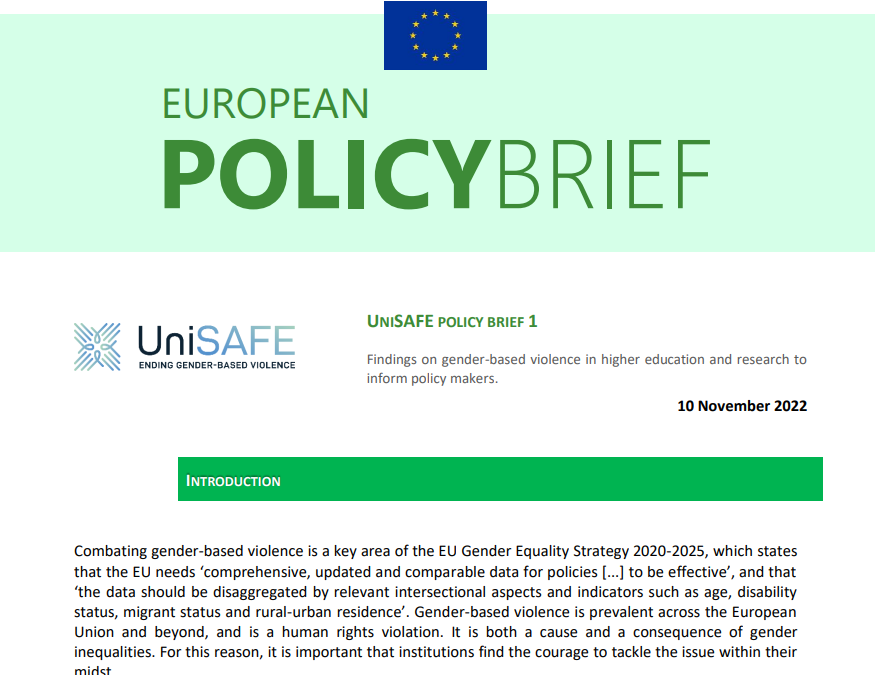
UniSAFE’s first Policy Brief
This policy brief, published by the UniSAFE project in November 2022, focuses on the results from the project’s first research period with the aim to inform policy makers on the state-of-the-art on gender-based violence in academia and research. The brief...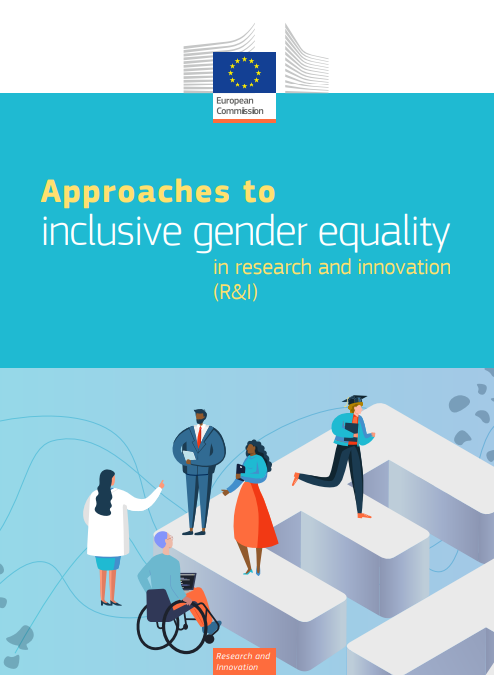
New European Commission report: Approaches to inclusive gender equality in research and innovation
‘Approaches to inclusive gender equality in research and innovation (R&I)’ is a new report published by the European Commission’s Directorate-General for Research and Innovation. The report examines the development of inclusive gender equality...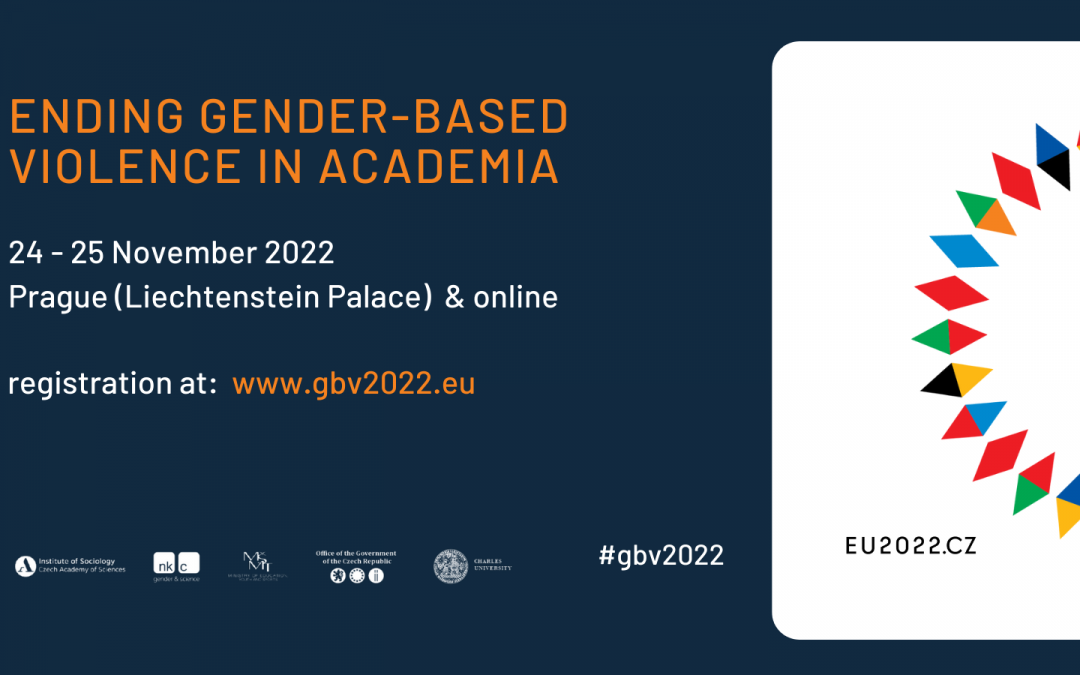
Join UniSAFE at the Ending Gender-Based Violence In Academia conference
Ending Gender-Based ViolenceIn Academia Toward Gender-Equal, Safe And InclusiveResearch And Higher Education 24-25 November 2022 Gender-based violence is one of the five recommended thematic areas of Gender Equality Plans under the Horizon Europe eligibility...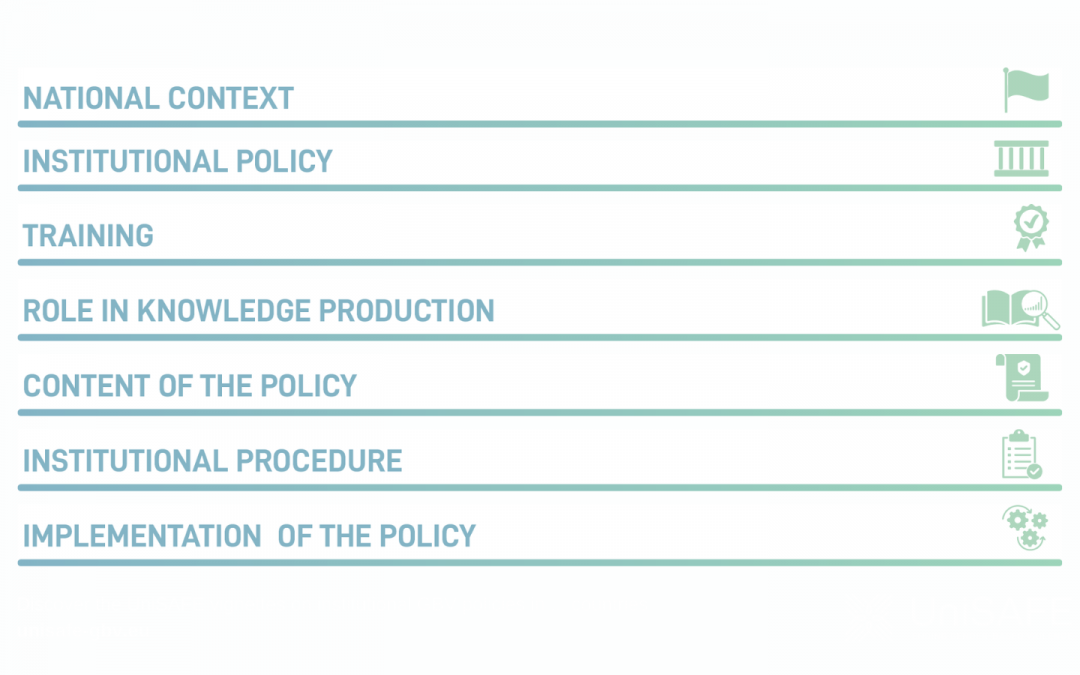
A review of institutional policies addressing gender-based violence in research performing organisations
UniSAFE has mapped the policies and measures to address and combat GBV in 48 universities and research organisations in 15 European countries. You can find the full report of this mapping here: Inventory of policies and measures to respond to GBV in European...
UniSAFE to take part in ESOF2022
The UniSAFE project will be represented at the EuroScience Open Forum (ESOF2022) on Friday 15 July 2022. Organised by EuroScience, the conference offers the scientific community a platform for interdisciplinary and intersectional debate about scientific culture,...